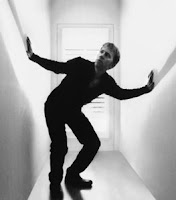Mike Safron - Pavlov's Dog
Unknown
11:55:00 π.μ.
Mike Safron
Pavlov's Dog - Children
As Siegfried would say, "Children was the best music group I ever played with".
The group lasted three years before breaking up do to financial situations and the end of a progressive music era.
Click Play For The Radio Interview
It was really a great honor and pleasure for us, talking with you Mr Safron.
We really thank you.
We wish you the best.





































